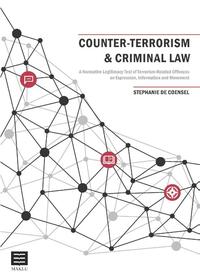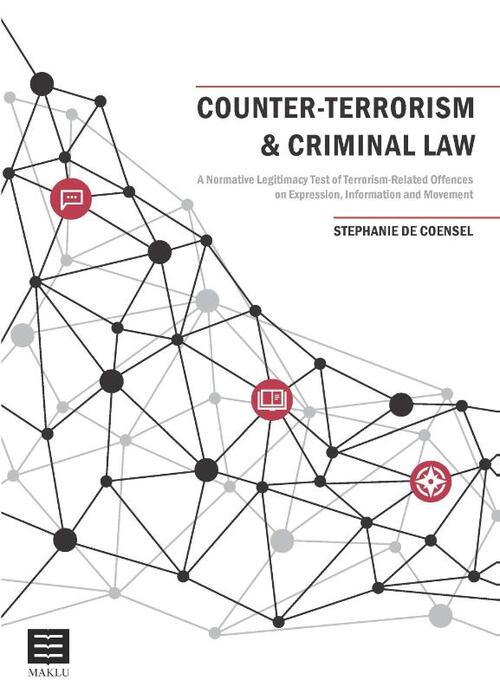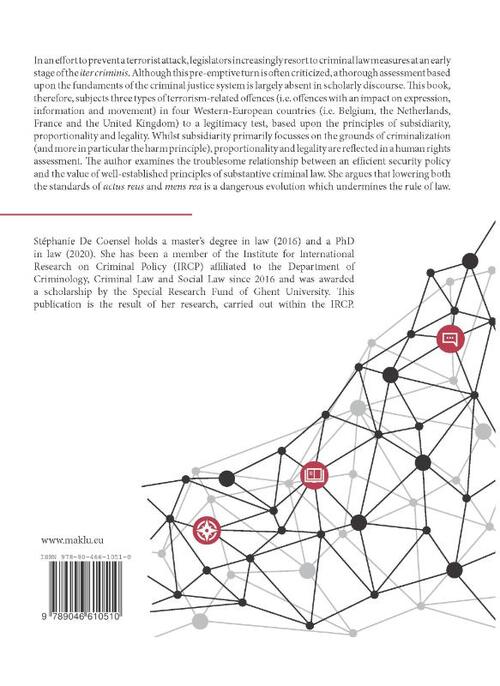39.00
3 - 5 Werkdagen
In an effort to prevent a terrorist attack, legislators increasingly resort to criminal law measures at an early stage of the
iter criminis. Although this pre-emptive turn is often criticized, a thorough assessment based upon the fundaments of the criminal justice system is largely absent in scholarly discourse. This book, therefore, subjects three types of terrorism-related offences (i.e. offences with an impact on expression, information and movement) in four Western-European countries (i.e. Belgium, the Netherlands, France and the United Kingdom) to a legitimacy test, based upon the principles of subsidiarity, proportionality and legality. Whilst subsidiarity primarily focusses on the grounds of criminalization (and more in particular the harm principle), proportionality and legality are reflected in a human rights assessment. The author examines the troublesome relationship between an efficient security policy and the value of well-established principles of substantive criminal law. She argues that lowering both the standards of
actus reus and
mens rea is a dangerous evolution which undermines the rule of law.
Stéphanie De Coensel holds a master’s degree in law (2016) and a PhD in law (2020). She has been a member of the Institute for International Research on Criminal Policy (IRCP) affiliated to the Department of Criminology, Criminal Law and Social Law since 2016 and was awarded a scholarship by the Special Research Fund of Ghent University. This publication is the result of her research, carried out within the IRCP.
Stéphanie De Coensel holds a master’s degree in law (2016) and a PhD in law (2020). She has been a member of the Institute for International Research on Criminal Policy (IRCP) affiliated to the Department of Criminology, Criminal Law and Social Law since 2016 and was awarded a scholarship by the Special Research Fund of Ghent University. This publication is the result of her research, carried out within the IRCP.

- : Stephanie de Coensel
- : Maklu Uitgevers N.V.
- : 9789046610510
- : Engels
- : Paperback
- : 399
- : december 2020
- : 761
- : 241 x 172 x 25 mm.

